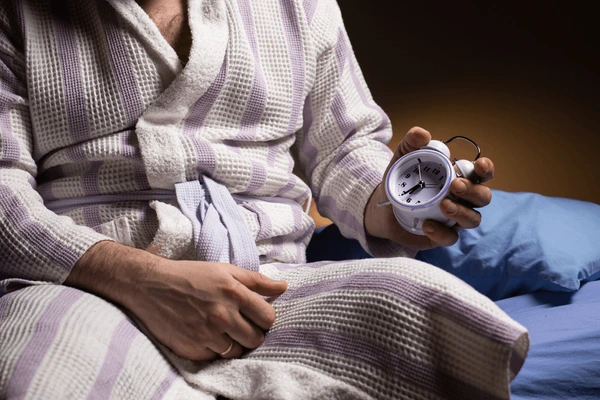As men age, hormonal changes become an inevitable part of the aging process. Referred to as “male menopause” or andropause, it involves a gradual decline in testosterone levels. Approximately three in 10 men in their 70s and 80s are estimated to suffer from low testosterone levels, leading to various symptoms such as reduced libido, fatigue, mood changes, hot flashes, erectile dysfunction, infertility, and diminished muscle mass.

Understanding the Dynamics of Male Menopause
According to the Mayo Clinic, testosterone levels can decrease by an average of 1% each year after the age of 40. This decline may intensify, with some men reporting up to a 50% reduction by the age of 70 compared to peak levels. To address these concerns, experts recommend regular blood tests to check testosterone levels.
Testing and Treatment
It’s crucial to note that testosterone level tests are not routinely conducted, requiring individuals to specifically request them from their doctors. If symptoms persist, testosterone replacement therapy (TRT) is a viable option. TRT, which includes prescription injections, topical gels, oral medications, or over-the-skin patches, aims to replenish hormones. However, Dr. Michael O’Leary, a urologist at Brigham and Women’s Hospital, emphasizes the need for cautious consideration, as aggressive marketing has led to an increase in therapy requests, even among those with normal testosterone levels.
Lifestyle Factors and Male Menopause
Maintaining a balanced lifestyle through regular exercise, a healthy diet, and quality sleep is crucial in managing testosterone levels. A study published in Obesity Reviews highlights that overweight men are more susceptible to low testosterone levels, emphasizing the importance of weight loss in boosting these levels.
Voices Advocating Awareness
Increasing awareness about male menopause is essential in dispelling misconceptions. Influential figures, such as British TV presenter Israel Cassol, who was diagnosed with “male menopause” at 40, are actively working to destigmatize the condition. Cassol, shocked by the revelation, stated, “I never knew it could affect men just as much” and is now dedicated to raising awareness and acknowledgment.
Breaking Stereotypes and Encouraging Discussions
Despite the prevalence of male menopause, societal stereotypes often hinder open discussions. Jed Diamond, a psychotherapist and author, notes that the fear of appearing less masculine is a significant barrier. Initiatives like Cassol’s aim to break down these barriers, encouraging men to prioritize their health and well-being.
In conclusion, understanding male menopause is crucial for both affected individuals and society at large. By recognizing symptoms, exploring treatment options, and fostering open conversations, we can collectively contribute to a healthier and more informed approach to male hormonal changes.


